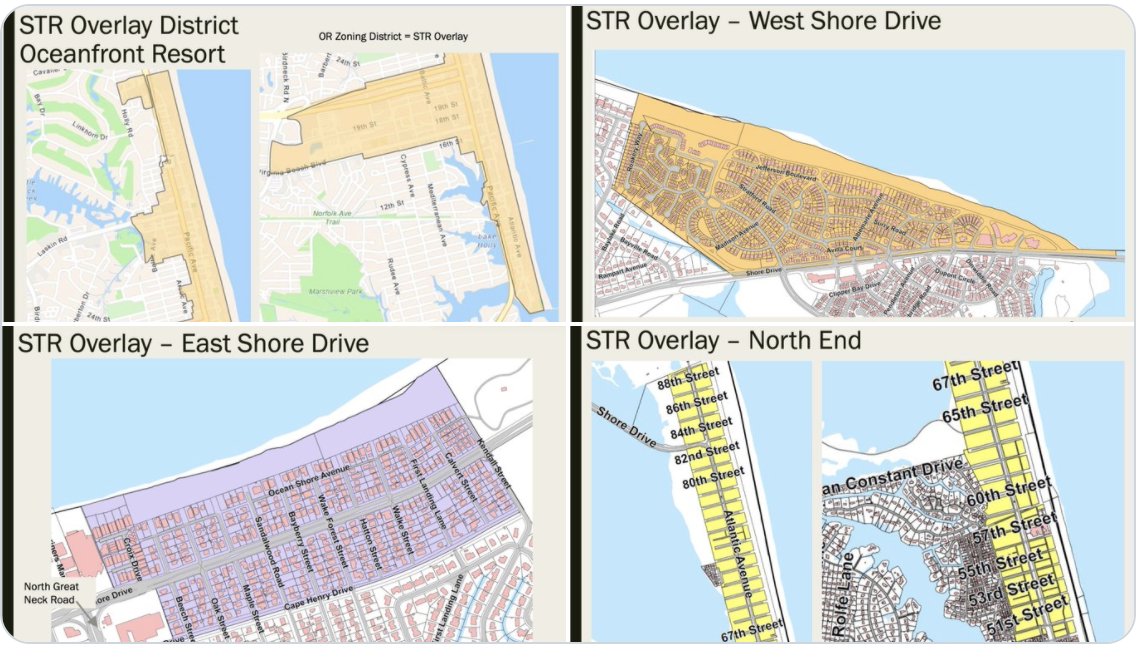VIRGINIA BEACH, Va. (WAVY) — Under a new proposal, property owners looking to rent out their homes to vacationers or visitors for short periods of time — would be out of luck in most parts of the city.
In the latest attempt to reign in the never-ending debate over short-term rentals, Vice-Mayor Jim Wood (Lynnhaven District) and Councilman Louis Jones (Bayside District) have proposed limiting short-term rentals to the communities of Sandbridge, the Oceanfront, parts of the North End and neighborhoods on both sides of the Lynnhaven Inlet along Shore Drive.
Since 2015, the city council has lamented over how to regulate the growing industry. Homeowners in the tourist town can make extra money renting their properties through sites like Airbnb and Vrbo. However, those owning homes and not interested in renting have complained that the constant flow of strangers coming and going is disruptive.
In 2019, rules meant to regulate and better manage rentals were approved by the council. In recent months, however, meetings have been stretching late into the night — even into the next day on one occasion — as rules require any property owners looking to operate a short-term rental outside of Sandbridge to get approval through what is known as a conditional use permit (CUP).
While many applications have been quickly approved, sometimes council would debate others for close to an hour when concerns dealt with any neighborhood opposition, parking, or if the idea was even “appropriate” for the community the property is located in. Council members were hearing roughly 20 applications each meeting.
“We had gotten to the point where we were spending more time on short-term rentals than anything else,” Wood said when asked about he and Jones’ plan.
If approved in its current form, CUPs will no longer be required for a person to have a short-term rental as long as they live within the set boundaries of those five areas and abide by the regulations. The communities were chosen as they have historically hosted vacationers and short-term rentals would likely not greatly change the neighborhood dynamic.

“The permit to operate would be issued by planning,” said Bobby Tajan, Virginia Beach’s planning director. “We would obtain an application similar to what we have now and we would require [the property owner] to provide us with all the information … we’d be able to keep track of it without doing the conditional use process.”
Those who are currently operating short-term rentals outside the specific communities would no longer be allowed to rent five years from the date their CUP was issued. That is unless they were already operating and up to date and registered with the Commissioner of Revenue’s office prior to July 1, 2018, in which case they never needed a CUP.
Wood and Jones’s proposal also allows for more communities to become eligible for short-term rentals if they gather 60 percent of property owners in a defined area to agree to it.
“I know it seems like sometimes we are trying to find a key to open the golden door. There is no key,” said Councilman Guy Tower (Beach District). “We are never going to get it exactly right. But short-term rentals are very popular right now. They are a real driver of economic development.”
Operators are required to pay city and state taxes just like hotels, motels and bed and breakfasts. As of April, the city estimates 2,700 properties in the city are operating as short-term rentals.
However not all may be operating “legally.”
Tuesday night, city council approved Tower’s proposal to decriminalize short-term rental violations. Currently, anyone not following the council’s set rules would be thrown into a lengthy court process.
Now, the city would simply fine the property owner $200 for the first offense and $500 for any
additional.
Of course, new rules are also a part of the Wood/Jones proposal.
Instead of having one off-street parking space per bedroom, garage and driveway spaces could be considered. Rentals would be capped at 52 a year. All special events would be banned and the number of people allowed per bedroom per night will drop from 3 to 2. Finally, an owner or property management representative must be able to physically respond to the property within 30 minutes of being notified of an issue.
Sandbridge and grandfathered properties would be exempt from those additions.
“STRs need more proactive enforcement than usual method,” Tajan said, mentioning he would like to increase his staff to help manage the growing business.
Tajan is proposing implementing a $150-$200 yearly user fee for short-term rental operators in order to help pay for a outside vendor that would track rental listings in the city, staff a 24/7 “in-person” hotline for people to call into with complaints and hire part-time inspectors.
“Our goal as we do zoning enforcement is compliance so when we would issue a fine it’s because they are operating a short-term rental without approval. Not because they have trash out.”
Still, Councilwoman Barbara Henley (Princess Anne), who has been staunchly opposed to the rentals, wants to see more.
“We still don’t have any safety standards and I looked at another deck collapse this weekend,” Henley said.
The public will have several chances to weigh in on the new proposals. Speakers will be permitted at the following dates:
■ October 6 – City Council vote on referral
■ November 4 – Planning Commission public hearing
■ November 17 – City Council public comment
■ December 1 – City Council public hearing/vote
Latest post:
- Firefighters seek upper-hand in Williamsburg Premium Outlets parking lot fire
- Tennessee wildlife officials rescue bald eagle injured by gunfire
- Maker of Trump guitars reportedly sent cease and desist order by Gibson
- BayPort Athlete of the Week: Kellam boys volleyball team
- Sean ‘Diddy’ Combs denied bail for a third time


























